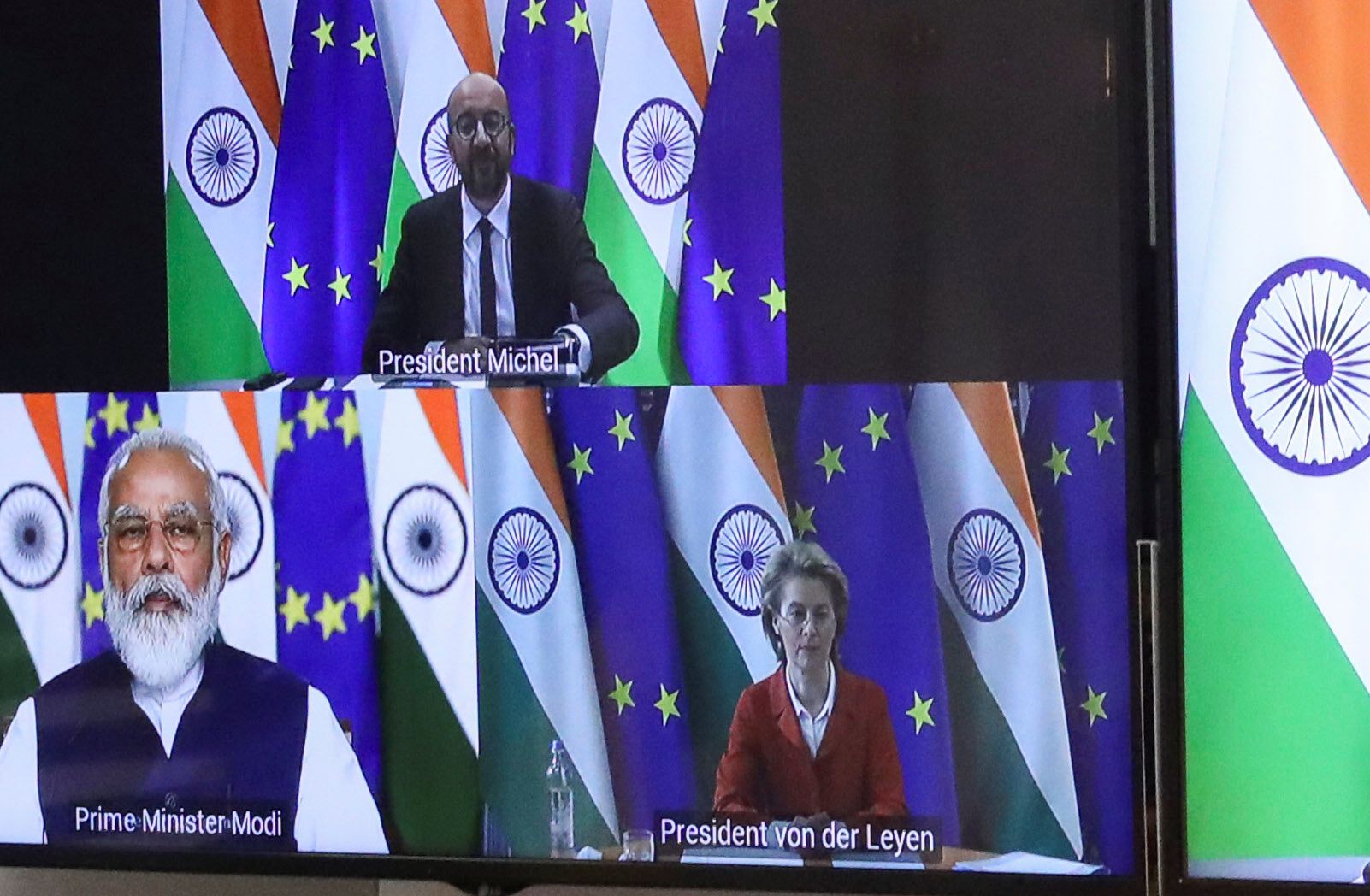EU-India Summit—the Democracy Linchpin

What was the context of the summit?
The 15th EU-India Summit—scheduled for 13 March but postponed because of the COVID-19 pandemic—was held on 15 July by videoconference. It was the first meeting of leaders in three years (the last summit took place in 2017). In that time, the EU Strategy to India was adopted (2018), EU leadership changed (in 2019), and the UK left the European Union (2020). This created an opportunity to give new impetus to a partnership traditionally regarded as not fulfilling its potential. The meeting also took place amid an important convergence of views towards China after the serious deterioration in India-China relations in June and the EU tightening policy towards the PRC in recent months. The pandemic has hit India hard, so cooperation on health protection and economic recovery after the crisis was an important dimension of the discussion.
What are the main results of the summit?
The parties adopted the “EU-India Strategic Partnership: A Roadmap to 2025” to guide cooperation in more than 20 areas. Although the core of the relationship is still economic (e.g., support for India’s modernisation, the digital transformation, including 5G and AI, and green energy), it extends beyond trade and investments to include more security and strategic issues. The plan proposes, among others, regular consultations on countering terrorism (such as the announcement of negotiations of an agreement between Europol and the Indian Central Bureau of Investigation on this area) and piracy on the seas, cybersecurity, stability in the Indian Ocean region, and more frequent military exchanges and contacts between defence academies. Cooperation on pilot trilateral development cooperation in third countries and joint connectivity projects in Indo-Pacific were also announced for the first time. An important result is also the tightening of cooperation in the field of civil nuclear energy (Euroatom signed an agreement with India).
Has progress been made on the FTA and what are the prospects for continuing the negotiations?
The lack of a breakthrough or even clear goals with regard to the negotiations of the Bilateral Trade and Investment Agreement (BTIA), launched in 2007 and suspended in 2013, can be considered the main failure of the meeting. While the EU has confirmed its willingness to conclude an ambitious and comprehensive agreement (including clauses on labour rights and environmental protection standards), a growing trend in India in recent years has been to protect its own market (e.g., cancelling investment protection agreements with EU countries in 2016). Unsolved matters include Indian tariffs on cars and alcohol, access to the public procurement market, and digital data-protection standards. A practical way to discuss these differences and possibly reopen negotiations is through a political dialogue on trade and investment at the level of trade ministers, which was decided at the summit.
What are the prospects for EU-India relations?
The good atmosphere of the talks and the results contrast with the failure of the EU-China summit of 22 June, which indicates that India may gradually replace China as a key EU partner in Asia. The parties are bound together by their attachment to democratic values. Although this is not a new area connecting the two sides, it has gained additional importance in the face of an increasingly authoritarian China. In the coming months, we should expect an intensification of bilateral contacts between the EU and India and the launch of new dialogue formats on security and economic issues. It is likely that the sides will jointly promote global standards for 5G, AI, and connectivity. Maintaining this positive trend in relations will largely depend on the development of the situation in India itself, including its position on the trade agreement and the state of democracy in the country.


